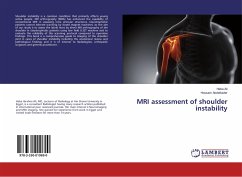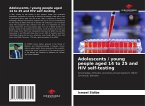Recurrent anterior shoulder instability (RASI) is a chronic symptomatology that occurs after anteromedial dislocation, or after repeated subluxations or purely painful episodes. It manifests itself in the form of uncomfortable apprehension of subluxation, or even dislocation, when the patient carries the arm in abduction and external rotation. It should be noted that anterior shoulder instability is not only clinically manifested by anteromedial dislocation, but that there are also frustrated clinical forms.The bone block described in 1954 by Latarjet was modified by Patte in 1980 under the name of triple locking (bone, muscle and capsular).This technique gives good functional results: 92% of patients are satisfied.
Bitte wählen Sie Ihr Anliegen aus.
Rechnungen
Retourenschein anfordern
Bestellstatus
Storno








